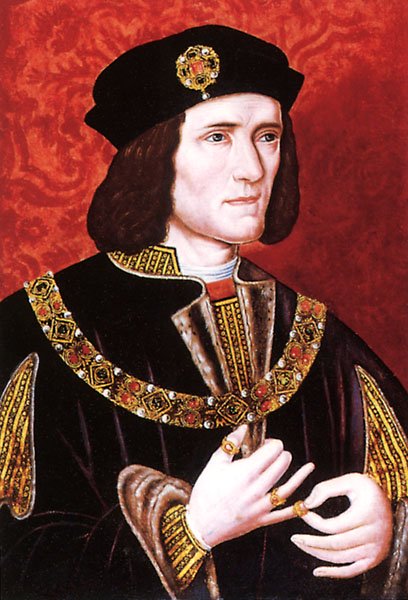Filed under: History, Literature, United Kingdom | Tags: Battle of Boswerth Field, Last Plantagenet King, Richare III King of England
What a fascinating story. DNA testing has confirmed that the skeleton dug up below a parking lot behind the council buildings in Leicester, is that of Richard III, the last Plantagenet King of England. Richard III was one of Shakespeare’s great villains. The bones were found amid the foundations of a Franciscan friary, the very place where history said Richard’s body was taken after the Battle of Bosworth Field in 1485.

Modern science could compare mitochondrial DNA taken from the 500-year-old skeleton with DNA from a living descendant of Richard’s sister. Richard became king in 1483, taking power from his nephew, the 12-year-old Edward V. Richard was said to have imprisoned his two nephews in the Tower of London, and within months of Richard’s taking the throne, the two nephews disappeared. Tudor supporters claim that he had his nephews murdered.

This portrait from the National Portrait Gallery dates from the 16th century, so it may not be representative, or may be derived from lost sketches.
Plantagenet supporters say a closer look at Richard’s reign shows him as one of the most progressive rules of his time who promoted trade and books. Another battle will occur over where Richard’s remains are to be buried. Leicester wants to keep him as a tourist attraction, others believe he should be interred. Richard III enthusiasts had called for the skeleton to be buried in York and others in Westminster Abbey or Windsor Castle, where other monarchs are interred.

What is most fascinating to me is the extent to which the discovery of the skeleton confirms the history as it is known. The body’s hands appeared to have been tied, and the skeleton shows that he probably died from blows to the head, which is consistent with contemporary accounts. The skeleton shows severe spinal abnormality from scoliosis which shows that Shakespeare’s depiction of Richard as a hunchback was accurate. The discovery will renew interest in the last Plantagenet King of England, and perhaps renew interest in history as well.


























